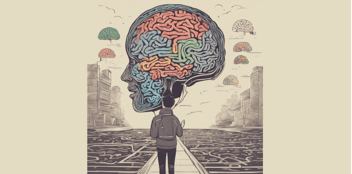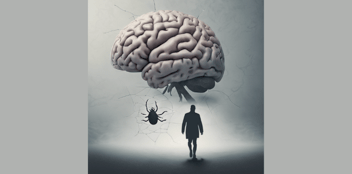Nutritional Psychiatry and Your Mental Health
- Home
- Blog

Reader, is it possible that what you think and feel is determined by what you eat? According to a growing body of evidence, the answer is a resounding yes: the food we eat and how efficiently we digest it has a sizable impact on our mental health.
As cutting-edge science demonstrates the link between food, cognition, and emotional states, it is becoming increasingly clear that what you eat directly affects the structure and function of your brain, and ultimately your mood and behavior. This link could determine the future of psychiatric care–and in this blog, we’ll take a look at three emerging fields–nutritional psychiatry, nutritional neuroscience, and nutritional psychology–that are paving the way for the future, today.
Nutritional Psychiatry and your Mood
Depression and bipolar disorder have traditionally been thought of as dysfunction in neurotransmitters such as serotonin or dopamine, that are modulated by antidepressants and mood stabilizers. However, when it comes to treatment resistant psychiatric conditions, this is only a small part of the story. Scientists have recently determined that the bacteria in our gut and the food we eat both play a significant role in regulating those neurotransmitters–for example, poor appetite, skipping meals, and eating a lot of sweets can precede and accompany clinical depression.
Nutritional psychiatry, a practice that we embrace here at Potomac Psychiatry, establishes many connections between diet, mood, behavior, digestive processes, and gut bacteria. Nutritional supplements and dietary improvements are increasingly recommended to improve or stabilize mood disorders, in many instances augmenting the judicious use of prescription medication. Nutritional psychiatry underscores the deep connection between our minds and our bodies–and we are excited to be at the forefront of this movement at our practice.
The Promise of Nutritional Neuroscience
Many aspects of nutrition–from food groups to specific nutrients–affect brain structure and function, and therefore have profound implications for understanding the nature of psychological health, aging, and disease. Nutritional neuroscience research offers the promise of using nutritional interventions to prevent the onset or delay the progression of neurodegenerative diseases such as Alzheimer’s and Parkinsons, that are becoming more prevalent as our population ages.
Nutritional Psychology and Behavior
Nutritional psychology studies the bidirectional nature of the effects of nutrients on mood and behavior. This field examines the relationship between food and our internal experience of ourselves. For instance, stress lowers our body’s ability to fight off disease, and depression can create musculoskeletal aches as well as digestive disease. Other effects of stress on the digestive system can include a drive to eat more calories, increased blood levels of cortisol (one of the stress hormones), indigestion, an increase in unhealthy cholesterol levels, and much more.
Nutritional psychology furthers the understanding of the links between our mind and our body including how our thoughts and feelings impact the foods we choose to eat, and how we digest, assimilate, and metabolize these choices.
If “You Become What You Eat” What Comes Next?
Since macro and micronutrients in foods help determine your mood and behavior, the fields of nutritional psychiatry, nutritional neuroscience, and nutritional psychology all have an important role to play in psychiatric treatment. And the good news is, you can start eating for a healthier brain today. For more information, contact Potomac Psychiatry to schedule a consultation with our nutritional psychiatrist. Your brain–and your gut!--will thank you.
.png?width=144&height=144&name=Untitled%20design%20(34).png)



